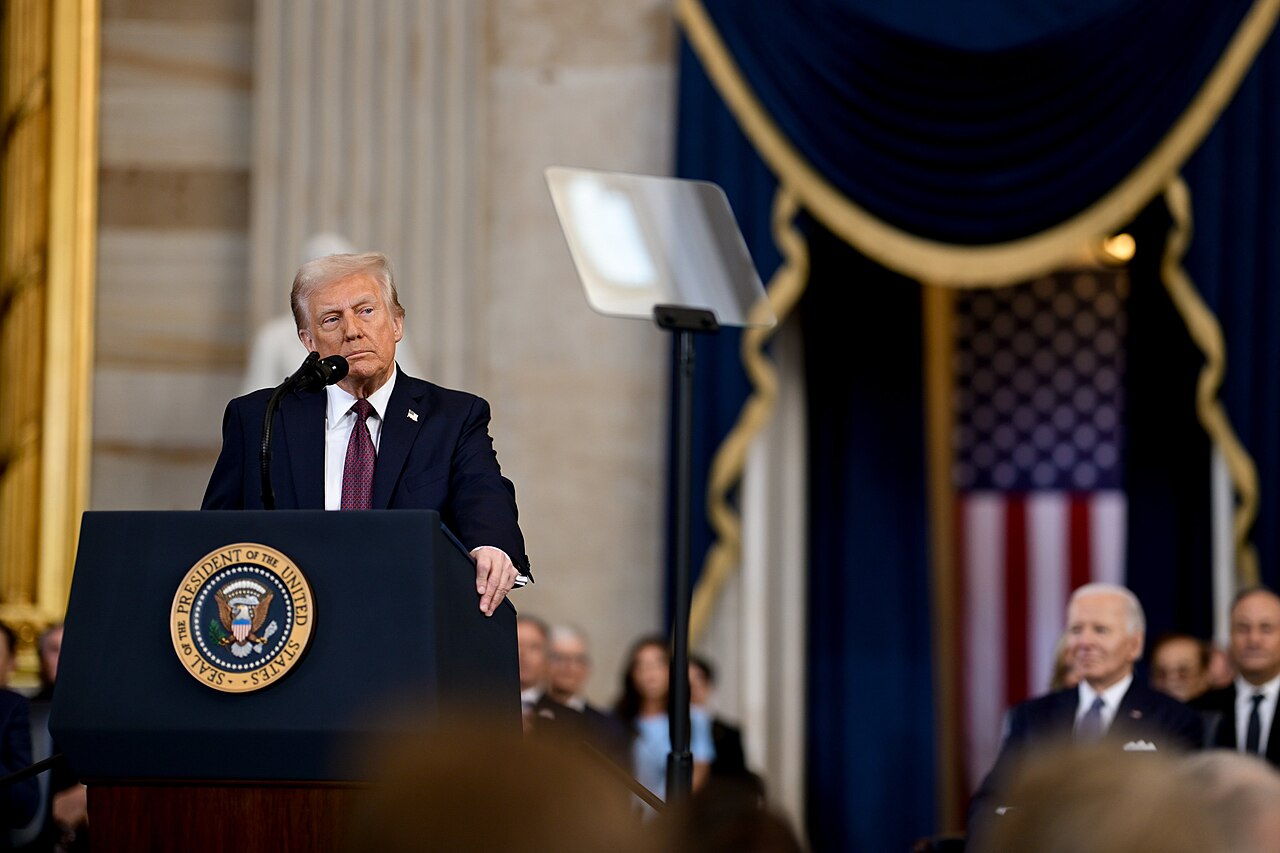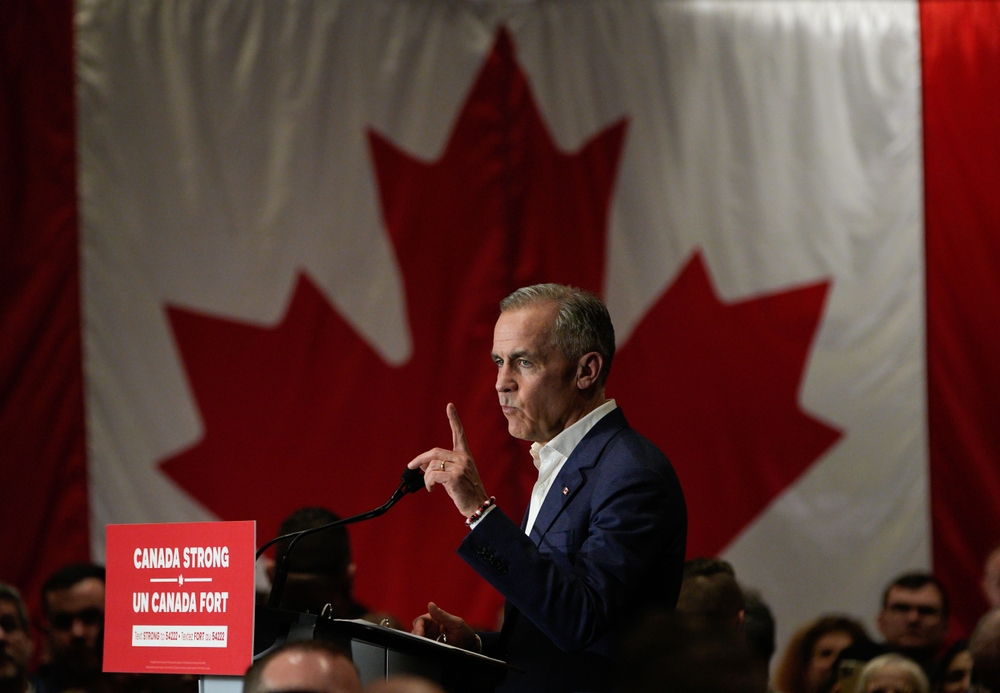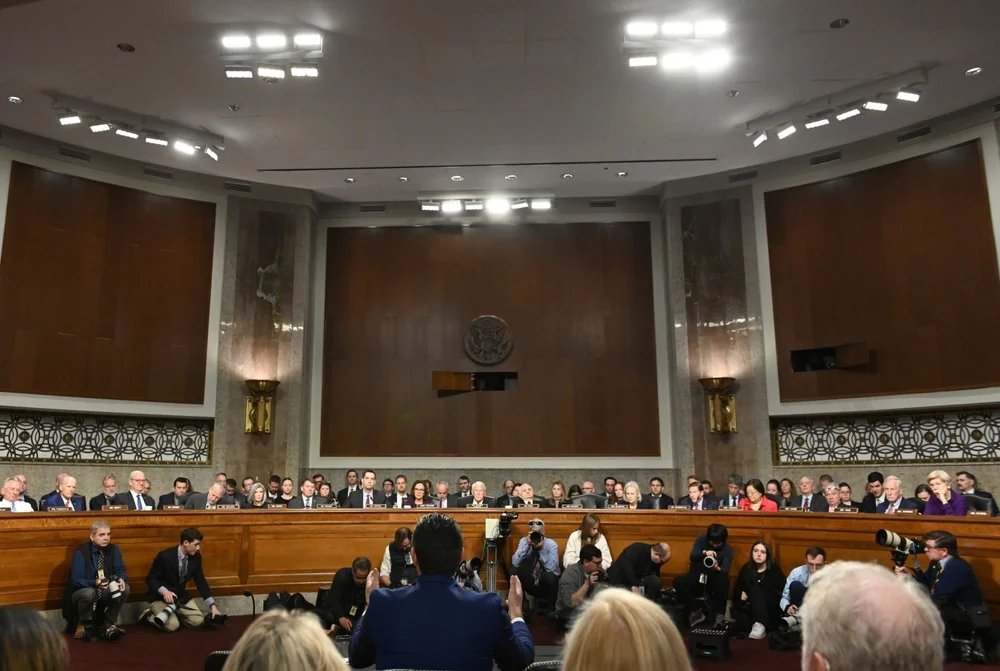
What Drove Trump's Victory
The GOP may have punctured the supposed “Emerging Democratic Majority” thesis.
The Civitas Institute Poll, conducted from November 7-12, 2024 (after the 2024 presidential election), asked 1,200 Americans an array of questions about how things are going in the country, about the status of American democracy and capitalism, and (most obviously) about the 2024 election. The poll reveals mostly positive findings for the Republican Party, which explains its strong showing in the recent election. Almost 60 percent of Americans believe the country is on the wrong track. These voters broke for Donald Trump by four points. Trump and Kamala Harris split the vote among voters who say the country is headed in the right direction. This was an unusual election with a sitting vice president running for the presidency, with the current president having been compelled to stand down for re-election. Harris ran, though, as a change candidate. She was nearly able to neutralize the change issue by emphasizing the need to “turn the page” and arguing that we should not “go back” to the days of Trump. Trump, on the other hand, closed his campaign by arguing, “they broke it, we’ll fix it.”
Much evidence discloses that voters are dissatisfied with the country's direction. When asked whether they have favorable or unfavorable feelings towards various governmental and public entities, Americans were (at best) ambivalent. The Supreme Court, for example, is viewed favorably by 52 percent of respondents, with 21 percent saying they are “very” favorably inclined. Local government also fares relatively well, garnering favorable feelings from 54 percent of the public (13 percent “very” favorable). But only 31 percent feel favorable towards the news media (9 percent “very” favorable), and the ratings for Congress (34 percent favorable) and the criminal justice system (40 percent favorable) are likewise under 50 percent.
However, it is worth reiterating that dissatisfaction only sometimes helped Trump. Rather, the focus of disaffection is diffuse and splinters the change vote. Among voters who were very unfavorable towards the news media, for example, Trump won 81 percent-15 percent. But among those who were very unfavorable towards the Congress, Harris won 63 percent-30 percent. And among those very unfavorable towards the Supreme Court, Harris won 90 percent-6 percent.
Beyond issues of low trust in institutions, there is no clear majority party, but the data suggests that there has been a change in the social group profiles of the Republican and Democratic parties. In particular, The Civitas Poll demonstrates that traditional voting patterns defined by education and race/ethnicity are changing. In 2024, Harris carried those with a post-graduate degree by 6 points and those with a four-year college degree by 10 points. Trump, on the other hand, carried those with a high school degree by 15 points. In 2020, he lost 18–29-year-olds by 30 points; in 2024, he lost them by 24 points, a six-point improvement. He did even better among 30–44-year-olds, improving his margin from -34 to -20 points.
Trump and the Republicans achieved something monumental in American politics by increasing their support among black and Hispanic voters. The GOP may have punctured the supposed “Emerging Democratic Majority” thesis that former President Barack Obama and other progressives once believed would carry their party to entrenched majority status. In 2024, Trump carried white voters by 11 points and lost black and Hispanic voters by 53 and 12 points, respectively. Compared to 2020, Trump improved his margin among white voters by two points, black voters by three points, and Hispanic voters by 12 points.
Economic issues were central to the concerns of most voters, with higher prices producing a backlash against progressive spending and regulatory policies. Voters by a wide margin rated these issues as paramount to their concerns, and they chose the Republicans by double-digit margins on most of these issues. The prominence of these economic issues advantaged Trump. Of those rating inflation/prices, jobs/employment, and taxes/tax rates as “extremely” important, Trump won the vote over Harris by 19, 6, and 16 points, respectively. He also carried those citing the budget deficit as “extremely” important by 27 points. This would suggest that the political remit for the Republicans is economic growth and the fundamental principles and policies that achieve this objective.
Trump’s greatest margins over Harris were among voters citing border security and immigration as “extremely” important to them personally (+46 and +40 points, respectively). Furthermore, Trump managed to attain a “draw” on the traditionally Democratic issue of Social Security, where Harris was only preferred by a single point among those citing the issue as “extremely” important.
Harris’ top two issues—climate change and abortion—were judged as “extremely” or “very” important personally by 63 percent and 65 percent of voters; that seems impressive, but these were the two lowest-scoring issues we tested.
Americans also consider the act of voting straightforward and expressed small concerns about voting availability. Large numbers of voters (85 percent) say it was “extremely” (57 percent) or “very” (28 percent) easy. Another seven percent say it is “somewhat” easy. Among voters under 30, 90 percent said voting was easy, while two percent said it was “somewhat” difficult. Among racial and ethnic groups, one percent of white voters say it was “somewhat” difficult, compared to four percent of black and two percent of Hispanic voters. The large number of Americans voting suggests that voters trust the process of elections and choose to be part of it.
Voters also registered concerns with partisan control of branches of government taking away their rights. The number of Americans concerned about losing basic freedoms tilts heavily toward fears expressed by Democrats. Some data we received found that fifty-eight percent of Americans are concerned that the president might try to take away their freedoms and rights (43% percent are extremely concerned). Unsurprisingly, though, the party divide is stark: the numbers are 85 percent of Democrats (67 percent extremely) versus 27 percent of Republicans (17 percent extremely). Among independents, 55 percent (40 percent extremely).
The same partisan divide exists for other branches of government. Seventy-eight percent of Democrats fear the House of Representatives might try to take away rights and freedoms, compared to 23 percent of Republicans and 55 percent of independents. For the Supreme Court, it’s 82 percent of Democrats, 29 percent of Republicans, and 50 percent of independents.
Despite concerns about one side running roughshod over their own side, voters do not necessarily embrace divided government. Just under half the electorate (47 percent) say they prefer unified control of government, while 29 percent prefer divided government, and 24 percent say they don’t know or “it depends.”
The data from this poll undergirds the well-known observations about American divisions in the electorate. Not surprisingly, Americans are also split in different directions about the sources from which they get basic information and political analysis. Much of the difference depends on age. Among those under 30 years of age, 57 percent list social media as their main source of news, whereas 15 percent say TV. Among seniors, 44 percent say TV, and four percent say social media.
What this means for political thinking and voting is an interesting question. However, the findings in this poll indicate that many Americans assess politics in terms of basic economic issues: growth, prices, jobs, and taxes. We also see the rising and favorable trend of greater competition for the support of minority voters, with the preferences of black and Hispanic voters being increasingly correlated with the economic health of the country. All told, political life in America is undulating and reaching outcomes that surprise the most seasoned of observers and the most cynical of politicos.
Daron R. Shaw is a senior fellow at the Civitas Institute, and Distinguished Teaching Professor, and Frank C. Erwin, Jr. Chair of State Politics at the University of Texas at Austin.
Politics
.webp)
Liberal Democracy Reexamined: Leo Strauss on Alexis de Tocqueville
This article explores Leo Strauss’s thoughts on Alexis de Tocqueville in his 1954 “Natural Right” course transcript.
%20(1).avif)
Long Distance Migration as a Two-Step Sorting Process: The Resettlement of Californians in Texas
Here we press the question of whether the well-documented stream of migrants relocating from California to Texas has been sufficient to alter the political complexion of the destination state.
%20(3).avif)
Who's That Knocking? A Study of the Strategic Choices Facing Large-Scale Grassroots Canvassing Efforts
Although there is a consensus that personalized forms of campaign outreach are more likely to be effective at either mobilizing or even persuading voters, there remains uncertainty about how campaigns should implement get-out-the-vote (GOTV) programs, especially at a truly expansive scale.

There's a Perception Gap With the U.S. Economy
As we approach another election cycle, it’s worth asking: what’s real, what’s political theater, and what does it all mean if Democrats regain control of the House?

International Law Is Holding Democracies Back
The United States should use this moment to argue for a different approach to the rules of war.

Trump purged America’s Leftist toxins. Now hubris will be his downfall
From ending DEI madness and net zero to securing the border, he’ll leave the US stronger. But his excesses are inciting a Left-wing backlash

California’s wealth tax tests the limits of progressive politics
Until the country finds a way to convince the average American that extreme wealth does not come at their expense, both the oligarchs and the heavily Democratic professional classes risk experiencing serious tax raids unseen for decades.

What Happened to the Anglosphere? The Tale of Two Enlightenments
Our politics and culture are caught in an epic struggle between the heirs of the Scottish and French Enlightenments.

Canada Doesn't Need to Win
Trump has offered Canada subordination. What would be more beneficial for both parties is coordination.












